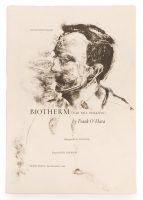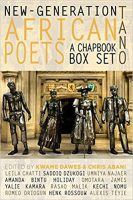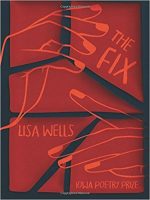April 13, 2018
Edited by David Sanders
Specimen Days
1668—John Dryden (36) appointed first English poet laureate by Charles II.
1695—Jean de la Fontaine, French poet (Fables), dies at 73.
1921—Maxwell Henley Harris, Australian poet/publisher (Gift of Blood), is born.
1939—Seamus Heaney, Irish poet and playwright (Nobel Prize in Literature 1995), is born in Castledawson, County Londonderry, Northern Ireland (d. 2013).
1942—Ataol Behramoglu Turkish poet and writer, is born.
1996—George Mackey Brown, poet, dies at 74.

Night-Piece
Must you know it again?
Dull pounding through hay,
The uneasy whinny.
A sponge lip drawn off each separate tooth.
Opalescent haunch,
Muscle and hoof
Bundled under the roof.
—Seamus Heaney
“A sponge lip drawn off each separate tooth. / Opalescent haunch, / Muscle and hoof” – Seamus Heaney
World Poetry
Balochistan: Pakistani Forces Abduct a Baloch Poet and Teacher, Two Students Still Missing

Pakistani forces have abducted school teacher and local Imam Maulana Abdul Razzak on Thursday 5 April 2018. This abduction follows the recent disappearance of Baloch poet Amanat Hasrat on Tuesday 3 April 2018. These two abductions in the span of two days are symptomatic of the tense climate in the Balochistan region and the impunity of the Pakistani authorities. Meanwhile, there is still no information regarding the disappearance of two young students, abducted in August 2016 and February 2017, despite their families’ calls for a safe return.
Russian Poet Faces Prison Term over Poem in Support of Ukraine – Human Rights

The prosecutor in the latest trial of Russian poet and former teacher Alexander Byvshev has demanded a two-and-a-half prison sentence for a poem called "On Ukraine’s Independence". This is not the first time that 45-year-old Byvshev from Kromy (Oryol oblast) has faced criminal proceedings over his poetry, but the outcome this time could be devastating since Byvshev is the sole carer for his two elderly parents, both with special needs.
Alexander Byvshev faces a two-and-a-half prison sentence for a poem called “On Ukraine’s Independence”.
Recent Reviews
Translation, Expanded Translation, Version, Mess.
by Peter Riley
Works claiming the new tag “expanded translation” are found to occupy a very wide range of different procedures, some incompatible with each other, and the treatment of the original varies from respectful representation to outright animosity. To investigate how far translation of classical or canonic poetry can be pushed away from the original in terms of modernisation, personalisation, and democratisation, I have chosen to look at a selection of translations of classic texts, starting with these by Tim Atkins and Peter Hughes.
Laura Kasischke's Where Now: New and Selected Poems
by Gale Renee Walden

I first encountered Laura Kasischke’s poetry decades ago, by accident. Drawn to a cover of Housekeeping in a Dream (1995), I fell in love with a poem in it: “Happy Birthday,” which contained a furious negation of the obvious, as well as a pop cultural reference to Charlie’s Angels: “their perfect voices like a choir/of hair…” Kasischke was pushing boundaries I hadn’t seen pushed before—leaving things out and expecting the reader to fill in the blanks: “If your shoes./ / If your hair, or /what’s left of your hair, and I/ don’t say this out of spite.” It’s true that in Kasischke’s poetry, the reader needs a certain amount of cultural/historical knowledge to follow all the leaps she makes (a familiarity, in this case, of Farrah Fawcett’s winged and angelic hair) but the leaping itself is exhilarating, and in some of her poems, the metaphorical leaps have the ability to pirouette.
John Ashbery, a Poet With Paper and Glue
A new book pairs some of Ashbery’s poems with the sophisticated
and playful visual collages he also made over the course of his career.
by Gregory Cowles
The poet John Ashbery, who died in September at the age of 90, cultivated a spirit of impish collision in his work — sometimes building whole poems (known as centos) out of other people’s lines, other times incorporating fragments of found language or swerving suddenly to a new topic in a spasm of surreal free association. The resulting poems were like high-performance cars assembled from junkyard parts, or runway fashions with the stitches intentionally showing. They were, essentially, collages.
Going on Nerve: Lynn Emanuel’s “The Nerve of It: Poems New and Selected”
by Suzanne Lummis
“We’re headed for empty-headedness” it begins, but the poems that follow the first one, “Out of Metropolis,” seem to proceed from a head brimming over with perceptions, imaginings, conversations, arguments, sensualities, obsessive pursuits, and total emersions — rivers that branch into tributaries. But one must factor in to those wayward metaphorical rivers — and to Lynn Emanuel’s The Nerve of It: Poems New and Selected — the poet’s masterful control of pacing, tone, her daring imagery, and deliriously pleasing language. Rivers, tributaries, they aren’t quite the right metaphor. And I admit to this here, in this fashion, to prepare the reader for poems, from four books spanning three decades, which will double back on themselves, contradict each other, reconsider — in other words behave not quite like rivers.
Laura Kasischke’s poetry requires the reader to to have cultural/historical knowledge to follow the leaps she makes.
Broadsides
Hannah Arendt on the Time She Met W. H. Auden
by Hannah Arendt
I met Auden late in his life and mine—at an age when the easy, knowledgeable intimacy of friendships formed in one’s youth can no longer be attained, because not enough life is left, or expected to be left, to share with another. Thus, we were very good friends but not intimate friends. Moreover, there was a reserve in him that discouraged familiarity—not that I tested it, ever. I rather gladly respected it as the necessary secretiveness of the great poet, one who must have taught himself early not to talk in prose, loosely and at random, of things that he knew how to say much more satisfactorily in the condensed concentration of poetry. Reticence may be the déformation professionnelle of the poet.
What, Prithee, Is A Poetess?
by Jessica Roberson
Popularity has long been a double-edged sword for women writers. It frequently serves as an excuse to excise their work from the canon of literary history at the exact moment it gains the attention and approval of the reading public. Women’s literary work is often subjected to patronizing critique and backlash once too many people have read it, particularly when those people are women, as the nineteenth-century “poetess” trend illustrates.
The Ongoing Influence of Frank O’Hara, the Art World’s Favorite Poet
by Alina Cohen

In the history of museum employees, Frank O’Hara wins the prize for taking the most legendary (and productive) lunch breaks. As a curator at the Museum of Modern Art from 1955 to 1966, he used the midday respite to pen his famous Lunch Poems. He vividly rendered his activities in New York, from consuming a hamburger and a malted to spotting cabs and construction workers on the streets. In “Ave Maria,” he famously urged American mothers to let their children go to the movies for sordid reasons. “They may even be grateful to you,” he wrote, “For their first sexual experience / which only cost you a quarter.”
What Role Can Poetry Play in our Discussion of Gun Violence?
by Adriana E. Ramírez
"Bells have rung at vigils after Pulse, and the Charleston church shooting and the carnage at Las Vegas — and they rang again in the aftermath of the massacre at Marjory Stoneman Douglas High School, where another angry well-armed young man unleashed a hail of bullets and took seventeen lives. We ring bells to mourn and we ring them as well to sound the alarm. We must sound the alarm right now and everyday to end the epidemic of gun violence in our country.” Kyle Dacuyan of PEN America spoke these words to a room of poets, writers and activists on March 9 at an offsite event during AWP, North America's largest literary conference, for the poetry collection "Bullets into Bells." Although it was published in December 2017, the reading was a kind of prelude to the past month of walkouts, protests and marches across our nation.
In the history of museum employees, Frank O’Hara wins the prize for the most legendary (and productive) lunch breaks.
Drafts & Fragments
'Just As True': Johnny Cash's Poems Set To Music For New Album
by Peter Breslow
When Johnny Cash died almost 15 years ago, he left behind a treasure trove of unpublished poems and handwritten letters. The new album Johnny Cash: Forever Words, out now, immortalizes those words in music. The 16-track record is a follow up to the 2016 book of the singer's poems, Forever Words: The Unknown Poems and includes stirring vocal performances from Elvis Costello, John Mellencamp, Brad Paisley, Willie Nelson, Alison Krauss and more. The man who brought the words and musicians together is Johnny and June Cash's son, John Carter Cash, one of the record's producers.
Why Those Fake-Poetry Subway Ads Are So Annoying
by Jesse Singal
If you live in a major American city and ride the subway, once in a while you’ll see a poem, often accompanied by some pretty art, where an advertisement would normally be. That’s because since 1992 the Poetry Society of America has bought ad space on subways and given it over to poetry for its “Poetry in Motion” program, touted on the organization’s website as “one of the most popular public literary programs in American history.”
When Johnny Cash died almost 15 years ago, he left behind a trove of unpublished poems and handwritten letters.
Poetry In the News
Poet Massey Withdraws Book From Wesleyan UP After Abuse Allegations Surface
Last month, poet Joseph Massey asked the Wesleyan University Press to cancel the publication of his book following the surfacing of numerous allegations of verbal, physical, and sexual abuse against the writer. Accusations against Massey first appeared online in a Jan. 8 anonymous blog post. In an interview with The Argus, Massey confirmed two accounts and attributed much of his behavior to alcoholism and a history of mental health issues. “I was highly inappropriate at times with people, extremely provocative, abusive at times—I had a horrible temper,” Massey said. “I have a past and I’ve worked really hard to become a better person.”
California Poet Laureate Dana Gioia Wins Poets’ Prize for ‘99 Poems’
Dana Gioia, the poet laureate of California, has won this year’s Poets’ Prize for “99 Poems: New & Selected.” The collection was published by Graywolf in 2016 and came out in paperback in 2017. A committee of 20 poets selects the winner of the $3,000 prize, administered by Lake Forest College.
Dana Gioia, the poet laureate of California, has won this year’s Poets’ Prize for “99 Poems: New & Selected.”
New Books
High Ground Coward by Alicia Mountain
[Paperback] University Of Iowa Press, 100 pp., $19.95

Alicia Mountain’s urgent and astonishing debut collection maps a new queer landscape through terrain alive and sensual, defiant and inviting. With a voice that beckons while it howls, Mountain nimbly traverses lyric, confessional, and narrative modes, leaving groundbreaking tracks for us to follow. High Ground Coward offers fists full of soil, leftovers for breakfast, road trip as ritual, twins of lovers and twins of ourselves. This world blooms with hunger-inducing detail, its speakers asking us to consider what it will take to satisfy our own appetites while simultaneously trying to nourish one another. “Ferocious, even the softest part,” Mountain shows us “a way to fall in love with wanting,” leaving us “ravenous, but gradually.”
Ghost Fishing: An Eco-Justice Poetry Anthology edited by Melissa Tuckey
[Paperback] University of Georgia Press, 480 pp., $42.95
The first anthology to focus solely on poetry with an eco-justice bent. A culturally diverse collection entering a field where nature poetry anthologies have historically lacked diversity, this book presents a rich terrain of contemporary environmental poetry with roots in many cultural traditions.
New-Generation African Poets: A Chapbook Box Set edited by Kwame Dawes and Chris Abani
[Hardcover] Akashic Books, 350 pp., $34.95

The limited-edition box set is an annual project started in 2014 to ensure the publication of up to a dozen chapbooks by African poets through Akashic Books. The series seeks to identify the best poetry written by African poets working today, and it is especially interested in featuring poets who have not yet published their first full-length book of poetry. The eleven poets included in this box set are: Leila Chatti, Saddiq Dzukogi, Amanda Holiday, Omotara James, Yalie Kamara, Rasaq Malik, Umniya Najaer, Kechi Nomu, Romeo Oriogun, Henk Rossouw, and Alexis Teyie.
Orlando by Sandra Simonds
[Paperback] Wave Books, 96 pp., $18.00
With breathtaking fervor, Sandra Simonds delivers an extended address to Orlando, which stands as both a city marked by vibrant promises fallen into betrayals and abuses and the specter of a past lover. Developing a series of recurring episodes and detailing an intricate network of relationships entangled in love, pain, anger, and compassion, this book boldly approaches personal trauma and memory in order to better understand the present.
The Fix by Lisa Wells
[Paperback] University Of Iowa Press, 70 pp., $19.95

Proceeding from Hélène Cixous’s charge to “kill the false woman who is preventing the live one from breathing,” The Fix forges that woman’s reckoning with her violent past, with her sexuality, and with a future unmoored from the trappings of domestic life. These poems of lyric beauty and unflinching candor negotiate the terrain of contradictory desire—often to darkly comedic effect. In encounters with strangers in dive bars and on highway shoulders, and through ekphrastic engagement with visionaries like William Blake, José Clemente Orozco, and the Talking Heads, this book seeks the real beneath the dissembling surface. Here, nothing is fixed, but grace arrives by diving into the complicated past in order to find a way to live, now.
In Reply to Cixous’s “kill the false woman preventing the live one’s breathing,” The Fix reckons with a violent past.
Correspondences
Poet Terrance Hayes Is Anything but Invisible
by Julia Lowrie Henderson

Terrance Hayes might be the only person ever to win a MacArthur “genius grant,” a National Book Award and to be named one of People magazine’s “Sexiest Men Alive.” By any standards, that’s a lot. But in the poetry world, it’s even more impressive. “Art is not the kind of thing where you get what you put into it all the time,” he tells Kurt Andersen. “So I learned to not expect anything, other than the sort of joy of having a poem in front of me.” Hayes released his book of poetry, “How to Be Drawn,” in 2015. And like Hayes himself, his poems work on many levels. His poems reference pop culture with surprising agility, showcasing his ability to draw inspiration from any source, anywhere. Sylvia Plath, Ralph Ellison, Marcus Garvey and Billie Holiday have all received nods in Hayes’ poetry.
Poetic Persona Still Guides Billy Collins
When Collins gives readings, he lets his persona guide the poems he chooses to read aloud.
by Benjamin Cassidy

"He resembles me in many ways, but at the same time, he's not as troubled as I might be," the 77-year-old poet told The Eagle on Wednesday morning during a telephone interview. "He's concerned with things that are kind of outside of himself." Collins was referring to his poetic persona, the voice in his works. While numerous contemporary poets have distinct personae, the former U.S. poet laureate's intellectual accessibility and observations about everyday life have resonated with perhaps more readers than any other bard in the past 30 years.
Interview with Clauda Rankine
by Kayo Chingonyi
Of all the books to enter the wider consciousness in the last decade, CITIZEN is the one to which I have returned most frequently. The book comes up in conversation in an astonishing array of situations, all of which serve to illustrate one thing: there is an appetite at the moment for discourse, for enquiry, for the posing of important and difficult questions. This tendency might not be anything new, but the media through which we can express it have multiplied in the last few years. Instagram and Tumblr poets are now part of popular culture, and the boundaries that divide poetry from other creative modes are being called into question. What does it matter if a text is or isn’t a poem as we commonly understand that term; what does that text make us feel? This is the question that sits at the heart of Claudia Rankine’s artistic practice, a practice which centres the art itself, the text, asking what form it should take to realise its potential rather than trying to bend that work into an existing shape so that it is recognisable as X or Y.
“He resembles me in ways, but also, he’s not as troubled as I might be,” Billy Collins remarked about himself.
Envoi: Editor’s Notes
Subway Ads

For the uninitiated, they are the advertisements printed on card stock that slip into the rounded joint where the interior side a subway car meets the ceiling of the car, legible to all, particularly those who couldn't find a seat and are left standing. All one has to do is tilt the head a few degrees and there they are.
Every once in a while one might come across an instance where those ads are substituted with poems—practical broadsides—to the riders' delight. The article above states that the Poetry Society of America has bought subway space for this purpose since 1992. But I know for a fact that this was not the beginning of Poetry in Motion, although I don't know when the name caught on.
What I do know is that as early as 1978 the subversive tactic of injecting poetry into the lives of transit riders was commonplace in Philadelphia. I can remember, as a daily rider of the elevated trains and busses, seeing those minimal poems, some snippets from longer pieces and some whole, camouflaged with the ads for local businesses and public service announcements that lined that ledge above my head. It gave me much comfort at the time, new as I was to city life, to see, as I remember, a sparse poem of Robert Bly's of the cold Midwestern winter writ large above the heads of the commuters. The silence of the poem was a stay against the real loud white noise of the train and the psychic loud white noise of the city.
To think that the guerrilla maneuver of hiding poetry among the ads has been perverted by introducing ads masquerading as poems is discouraging at best, and something like a mark of decay at worst. Shame.
The guerrilla maneuver of hiding poetry among ads has been perverted by ads masquerading as poems. Shame.